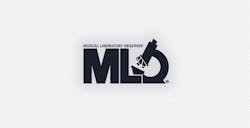Labs speak out against additional Affordable Care Act cuts
In January 2013, the Affordable Care Act—sometimes referred to as the “healthcare reform law”—will impose a new 2.3% excise tax on medical technology companies that is estimated to total $30 billion in new taxes. Working to repeal this tax is a leading priority for the medical device industry. Manufacturers assert that the tax will have an adverse impact on device innovation and job creation as they are forced to make drastic economic decisions to prepare for the tax. But the tax has further implications that may not have been considered by Congress when it agreed to include the tax as a way to pay for other programs and provisions within the health reform law. The broader healthcare community has been vocal in expressing its concerns about the tax, outlining how the tax will affect its business and its ability to provide patient care.
Hospitals and health systems and their national associations are urging the Internal Revenue Service to establish a mechanism to prohibit manufacturers from passing the tax on to their customers. Much of the clinical laboratory community, which is already dealing with a 1.75% direct cut and a productivity adjustment, which began in 2011 as a result of the health reform law, also has said “enough is enough.” Through an effort led by the National Independent Laboratory Association (NILA), labs around the country and national laboratory and healthcare organizations have urged Congress to repeal the tax, citing concern that the tax will increase their overall cost of doing business as purchasers and users of healthcare equipment and medical devices.
As readers know, the Republican leadership in the House of Representatives has expressed strong support for repealing the Affordable Care Act in its entirety, rather than by a piecemeal approach. (This has only intensified since the Supreme Court ruled that most of the law is constitutional earlier this summer.) Nevertheless, in June, the House of Representatives agreed to move forward legislation sponsored by Representative Erik Paulsen (R-MN) to repeal the device excise tax.
In letters to the House Ways and Means Committee and to the House Republican and Democratic leadership issued prior to the votes, the clinical laboratory community joined other healthcare organizations in urging the House to repeal the tax, stating that the tax will adversely impact patient care and healthcare innovation while substantially increasing the cost of healthcare, including costs on laboratory businesses. Saying “a tax on one is a tax on all,” the laboratory organizations represented sought to explain to Congress that the tax would further exacerbate the immediate and long term financial pressures the industry is already facing, including a 20% cut to the Medicare Clinical Laboratory Fee Schedule (CLFS)—9% from a direct fee schedule reduction and 11% from a productivity adjustment over ten years—along with an additional 2% cut to the CLFS to pay for a short-term patch to the Medicare Physician Fee Schedule, which Congress imposed earlier this year. The laboratory community reminded members of Congress that all of these cuts are on top of the looming 2% cut from sequestration, the automatic cuts to Medicare providers that were approved by Congress last year when legislation was signed into law to raise the country’s debt ceiling.
Many community laboratories across the country characterize the magnitude of the current cuts and the additional threat of passed-on costs imposed by implementation of a device tax as a “death by a thousand cuts.” In the letter to Congress, the laboratory community stated that “as employers, our business reality is already startling, as Medicare payment amounts for clinical laboratory testing have been reduced by about 40% in real inflation-adjusted terms over the past 20 years. These cuts destroy medical innovation and the ability to bring new lab tests to market. For independent community laboratories, any additional cuts—direct on laboratory fees or indirect from the device excise tax—threaten their existence and cannot be absorbed.”
For the National Independent Laboratory Association (NILA) the issues covered by the letter are personal, and speaking up on the device tax and on laboratory cuts is an effort to ensure the survival for its members. The association represents many family-owned and operated businesses that have been passed down through generations, and the economic pressures hit these small and mid-size community laboratories the hardest. NILA members are actively lobbying Congress to ensure against additional direct cuts as Congress is expected to address several issues that carry economic consequences in its lame-duck session, following the November 2012 elections.
NILA was joined by the Clinical Laboratory Management Association, American Medical Technologists, American Association for Clinical Chemistry, AdvaMedDx, American Association of Bioanalysts, and individual laboratory organizations in speaking out against the device tax and working to ensure that Congress is continually reminded of the consequences any additional cuts or cost pressures will have on the laboratory community. The Senate has yet to move forward legislation to repeal the tax, but NILA will continue to raise these issues with its partners.
Julie Scott Allen is a government relations director in the Government and Regulatory Affairs Practice Group of the national law firm Drinker Biddle & Reath. Ms. Allen is based in Washington, D.C.

